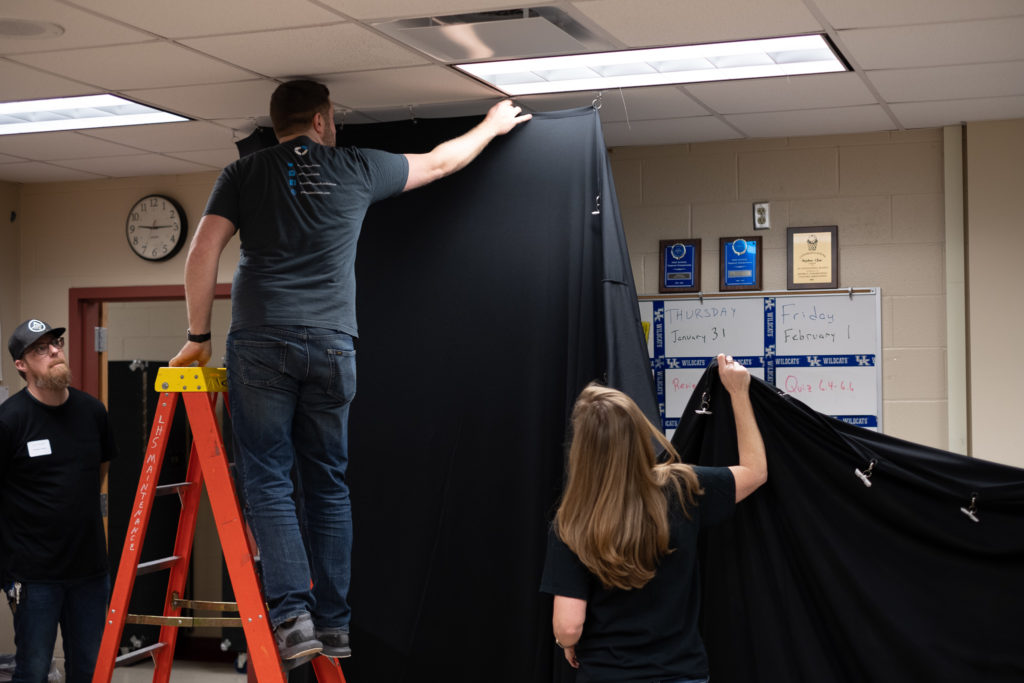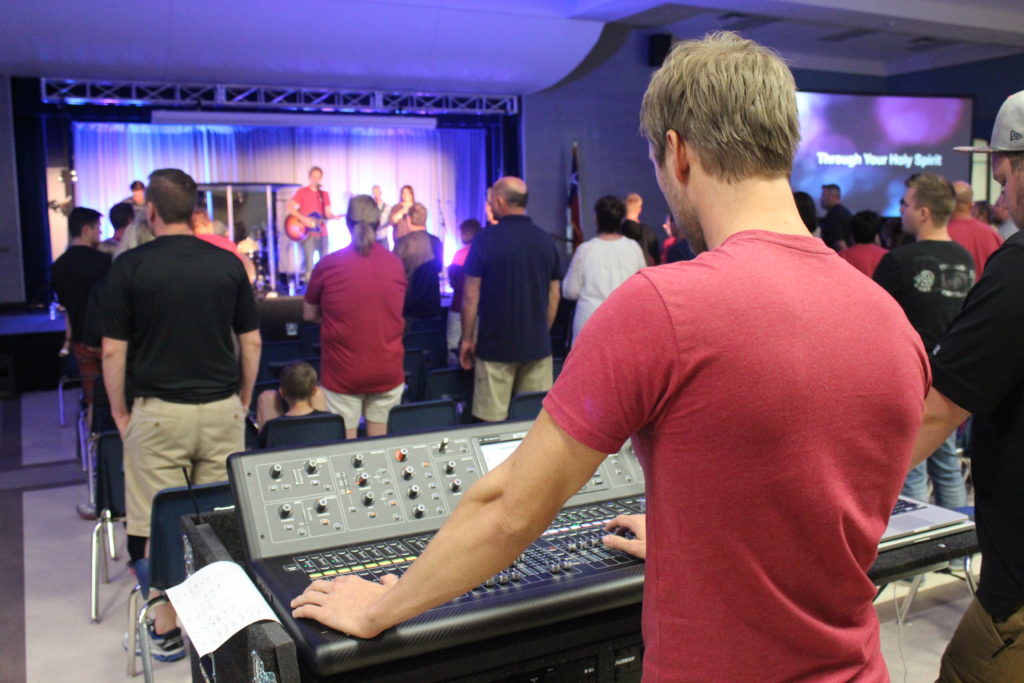Invest time in learning how to train your volunteer teams and empower them to serve your church with excellence.
The Ultimate AVL Team Guide for timeline, roles, and task lists.
It’s one thing to recruit a number of volunteers but it’s another thing to effectively train your volunteer teams. Without a good training strategy, you’ll end up with either too many volunteers milling around without any idea of what to do, or a high volunteer dropout rate, which then leaves you with too few people to help you out on a Sunday.
THE DIFFERENCE TRAINED VOLUNTEERS CAN MAKE
When Faith Promise Church in Knoxville, TN, was ready to launch its sixth campus, they were compelled once again to use a portable site. But experience proved to be extremely valuable, and the executive pastor, Josh Whitehead, vowed to do things differently this time.
Starting with his church’s first portable setup, which took a whopping three hours every Sunday to set up, the newest site requires only one hour and fifteen minutes to assemble – over two buildings and with much more equipment. The difference? Portable equipment solutions designed by PCI and a solid volunteer training model.
Keep reading to learn the tips that made Pastor Josh’s volunteer training experience – and that of so many other leaders – more effective and impactful.

4 Tips for Effectively Training Your Volunteer Teams
Knowing how to train a group of 24–40 (depending on system size) people takes some experience and will always be more effective if you consult with people who have done it before. We have a load of experience in this field. Here are some tips for effectively training your volunteer teams and ensuring that your Sunday set-ups and tear-downs run seamlessly:
Tip #1: Don’t train before you have enough volunteers
You don’t want to have to run more sessions than necessary, so try to collect enough volunteer names and then schedule training.
The unexpected benefit with this method is the team- and morale-building aspect of training. That particular group of people will form a connection and bond and you’ll already be steps ahead as a team.
Skip the burn: Empower Your Volunteers and Avoid Burnout
Tip #2: Keep an eye on your team numbers
As a general rule, you’ll need between 24 and 40 volunteers. If you have more than 40, consider dividing the team into two groups. The first group attends the first training session and then trains the second group in the second training session (as a way of consolidating their training).
Then, both teams can serve together for a weekend or two, building confidence to eventually serve on their own. Always keep in mind that a confident volunteer will be far more effective than one who isn’t totally sure of what they need to do and how to do it.
You will never regret investing time in learning how to empower others to serve your church. A deeply experienced leader or an excellent trainer will ensure that new volunteers are well prepared and can serve others effectively. Click To TweetTip #3: Separate teams train together
It is beneficial to everyone if all volunteers have a basic understanding of what others do. Naturally, you do not want to subject your volunteers to unnecessary training, but a general understanding of the overall process will give their purpose more direction.
So, if you already have multiple teams or you have one team that sets up the gear and another that uses the gear, we recommend that your teams attend training sessions together.
More volunteer tips: The Secret to Excellence and Volunteer Retention in Portable Churches
Tip #4: Schedule back-to-back setups or tear-downs
Naturally, the first time your volunteer teams set up will always take a very long time. Usually, this falls on a Saturday, during their training session.
Here’s the trick: make sure that you schedule the same set of volunteers to set up first thing the following Sunday morning. This will not only reinforce their knowledge but will also increase their confidence. It will benefit everyone if you boost positivity and excitement about being part of the set-up and/or tear-down team.

LEARN HOW TO EFFECTIVELY TRAIN YOUR VOLUNTEER TEAMS
You will never regret investing time in learning how to empower others to serve your church. This is what Pastor Josh of Faith Promise had to say about his teams being empowered and taking ownership:
“The solution promotes ownership. People arrive to church early, before anyone gets there. They just start working because they know what to do. The training leads to preparedness. It’s a natural flow, done right.”
In fact, he reports that seeing volunteers on mission with the church and taking ownership is the best part of the portable experience.
With effective training, your team will take ownership and get on mission, too. And when you have the right system in place and an experienced leader to train your crews, your volunteers will be well prepared to serve others effectively. Don’t miss out on opportunities to learn more about training others.
Is your AVL team on task and clear on their jobs? Download The Ultimate AVL Team Guide for a free timeline, team member role descriptions, and helpful task lists.
































































